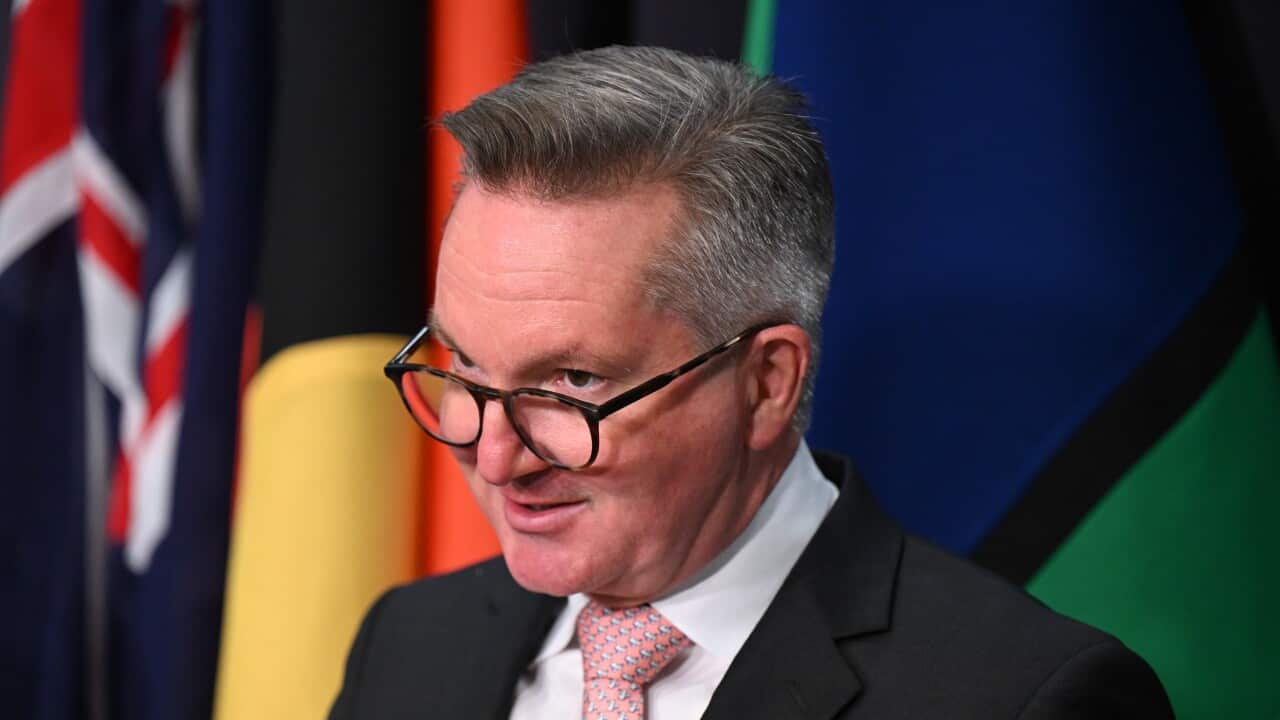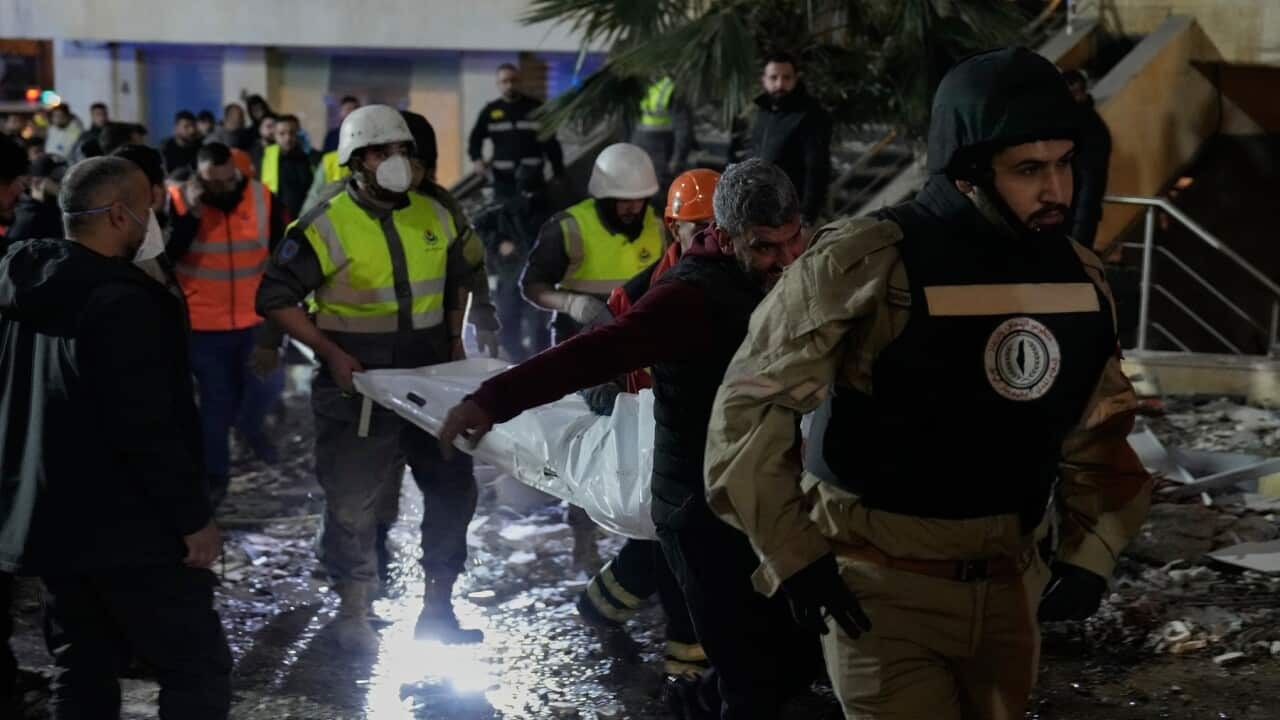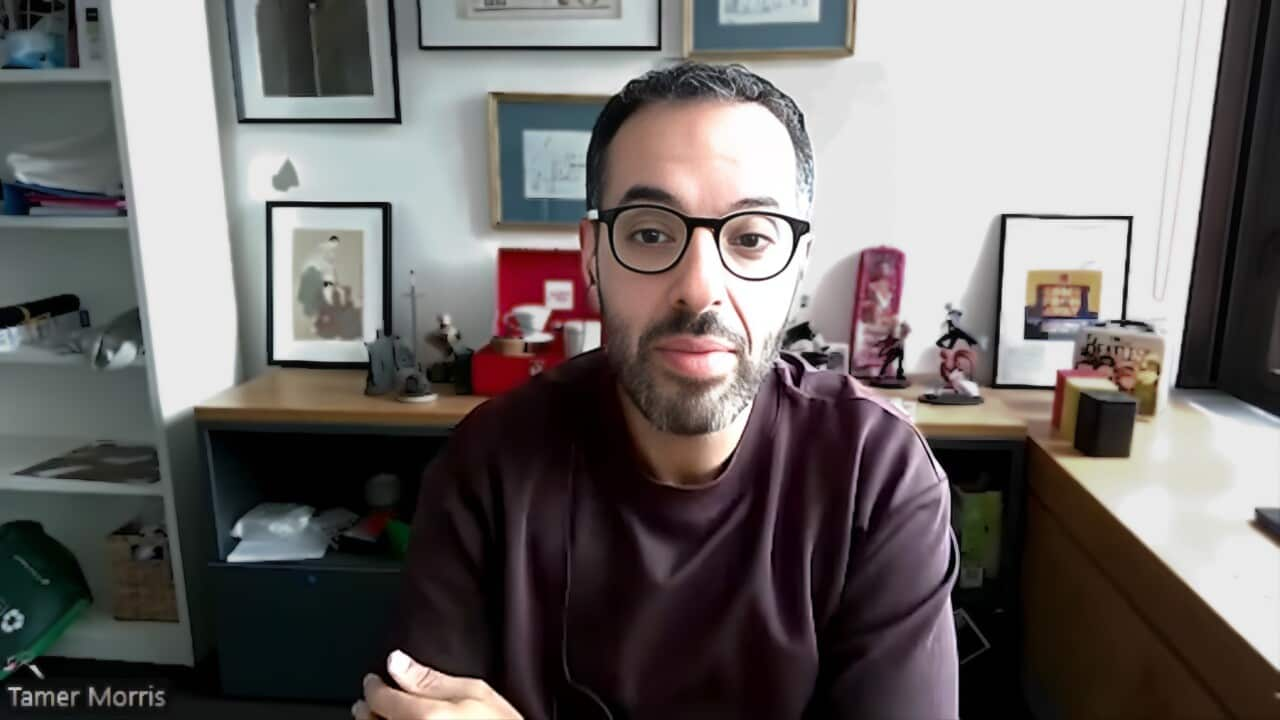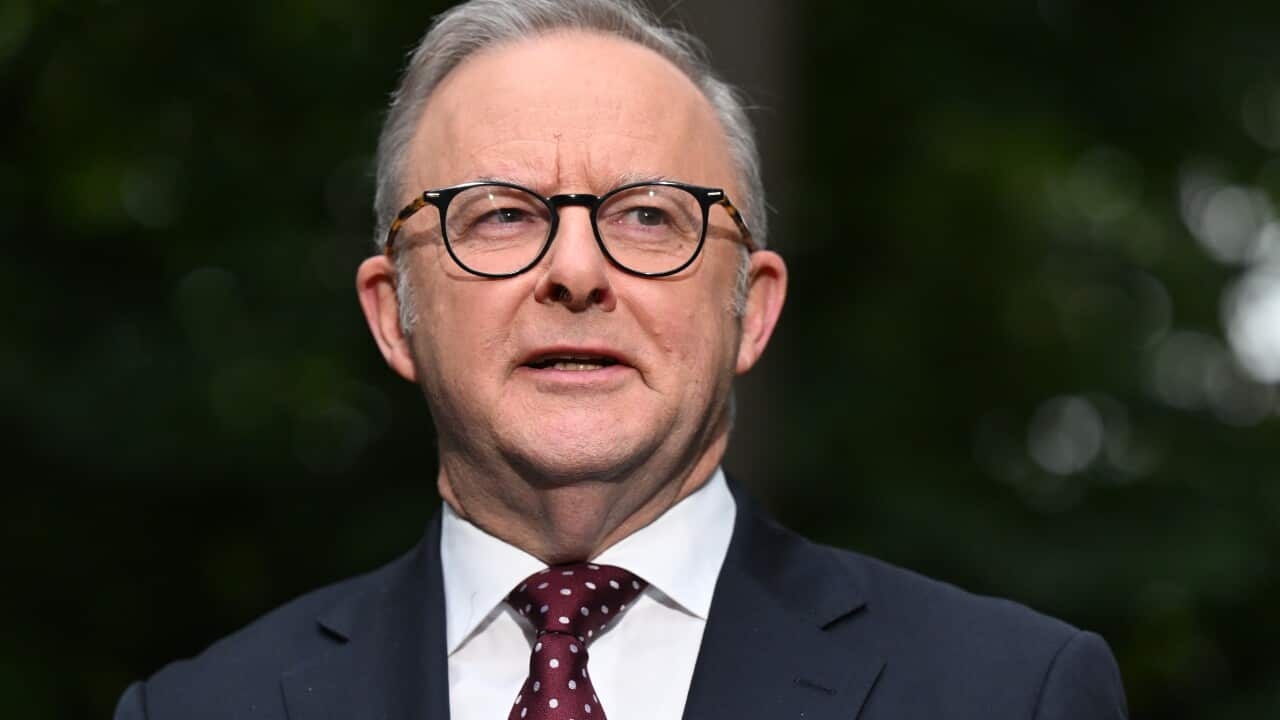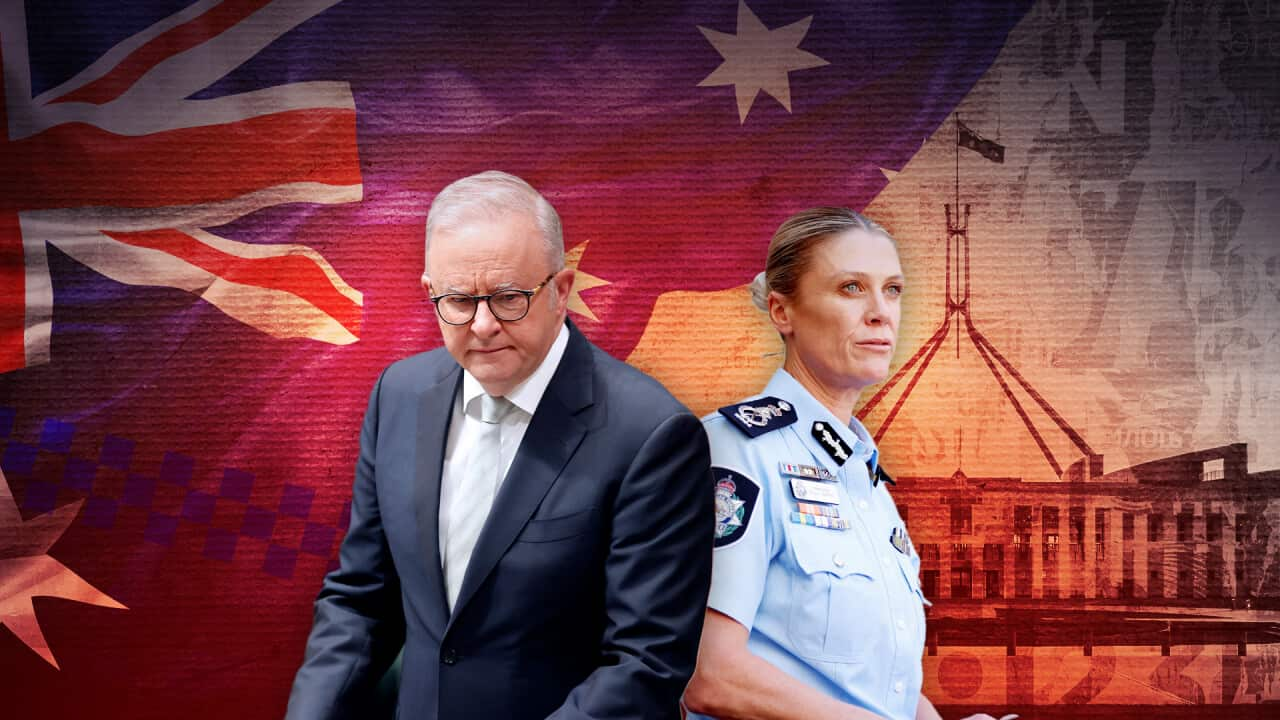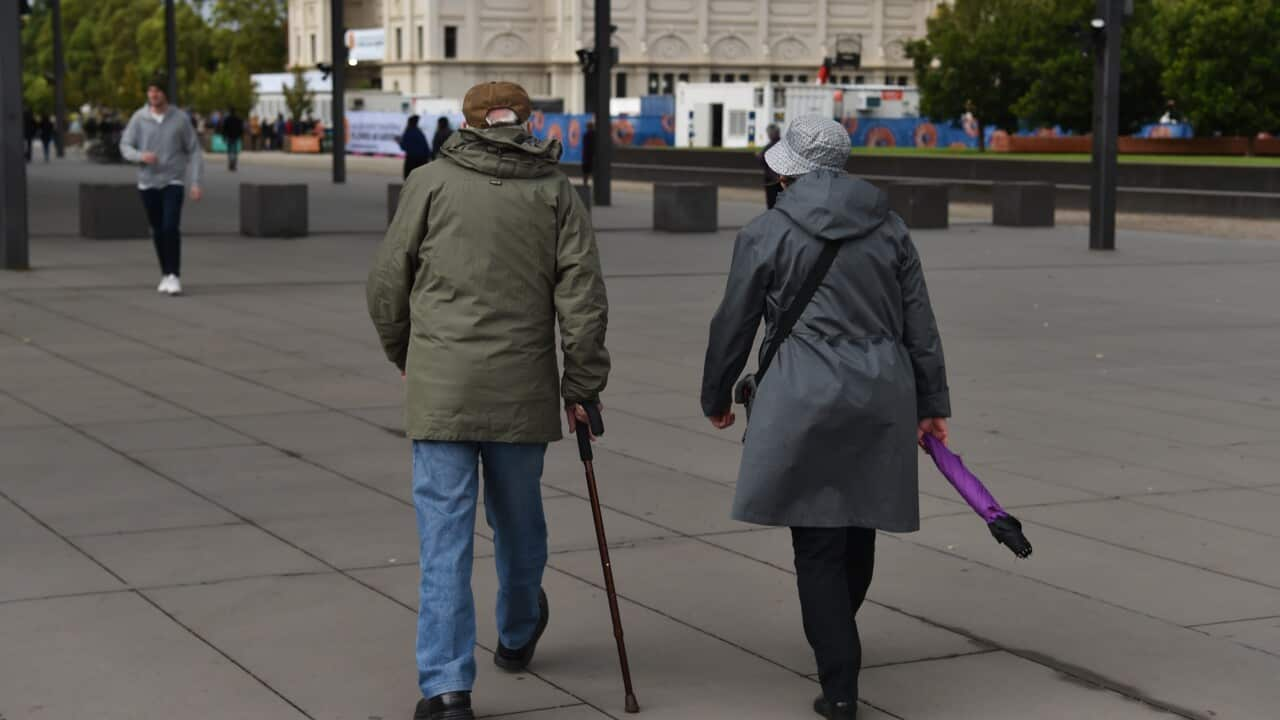Listen to Australian and world news, and follow trending topics with SBS News Podcasts.
TRANSCRIPT
When it comes to climate change in Australia, no one is immune to the risks.
While many are already living with the consequences, Australians in every small town and major city can expect to face not only more frequent natural disasters, but more intense ones.
From agriculture to national security, the newly released National Climate Risk Assessment says no city or sector will be spared.
Announcing the release of the long-delayed report, Climate Change Minister Chris Bowen says it presents a confronting reality.
"Cascading, compounding, concurrent. That's how the Australian climate service describes the impact of climate change on every community in our country. Cascading it will get worse over time. Compounding each impact of climate change will make another impact worse, and concurrent, communities will suffer the impacts of climate change in different ways at the same time, and will have a lot to manage."
The report makes for a bleak read, warning the government of soaring heat-related deaths and sinking property values.
With average global temperatures already rising 1.3 degrees [[Celsius]] above pre-industrial levels, experts say that under current policy, that will rise to at least 2.7 degrees.
If a city like Sydney were to reach 3 degrees of warming, the reports says it can expect a 444 per cent annual rise in heat-related deaths.
Greens leader Larissa Waters says the report is terrifying.
"The report released today by the independent Australian Climate Service says there might be 300 days of floods in Brisbane every year. Might be one and a half million people facing heat waves. There might be a seriously large proportion of our coastal centres underwater in just 25 years time. There might be crop failures and food shortages leading to even more cost of living pressures, and one of the security analysts has described the current cost of living crisis as just a warm up compared to what would come under the future agricultural impacts."
Because of Australia's densely populated coastlines, the assessment estimates that as many as three million Australians will be at high risk from cyclones, flooding, and erosion by 2090.
It says losses in property values could grow to $770 billion by 2090 if serious action isn't taken to adapt and relocate those coastal populations to lower-risk locations.
These figures, Mr Bowen says, show why serious climate action should not be a topic of debate.
"So at a time when the political debate is focused on the costs of action, both real and imagined, this report is a reminder, if we needed one ever, that the cost of inaction will always outweigh the cost of action."
Commissioned by the government in 2022 and created by the Australian Climate Service, the National Climate Risk Assessment will help inform the government's 2035 emission reduction target.
Chris Bowen says that he has received the necessary advice from the Climate Change Authority on what target the government should set, with expectations it will fall between 65 and 75 per cent.
Speaking to Sky News, Nationals Senator Matt Canavan, who is currently pushing for the Coalition to repeal their Net Zero target, says the Albanese government is trying to spread panic.
"Look, I think it can be summed up the best by comparing two reports on climate change have come out last few months, this report is full of flashy graphics, dramatic language, biblical type, condemnation, damnation is going to come down this nation, if you believe that report. Another report on climate change was released by the US government, US Department of Energy, a few weeks ago. It's done by respected scientists. There is no flashy graphics. It's all just plain black and white text, and some fairly nerdy graphs, and it's a very sober assessment that yes there are some risks but it is nothing to panic about."
The report that Mr Canavan is referring to was led by U-S Energy Secretary Chris Wright, who prior to his appointment was C-E-O and founder of Liberty Energy, a major U-S onshore oilfield company.
In response to that report, over 85 climate experts came out to condemn the findings, describing the research as misleading and flawed.
In their response, they accused the department of employing tactics similar to those used by the Tobacco industry in its efforts to undermine certainty about the dangers of smoking.
Assistant Minister for Climate Change, Josh Wilson, says that this government takes the issue far more seriously than those before them.
"The Albanese government has put Australia on a very different path in terms of both mitigation and adaptation, after what was by any measure, a decade of incompetence and neglect, a wasted decade."
Alongside the assessment, the government has released the National Adaptation Plan, which outlines how Australia can mitigate the unavoidable risks of climate change.
While some risks are avoidable, Minister Bowen says it's common knowledge that some consequences of climate change are already locked in.
He says if things continue down this path, sectors across the board will be forced to adapt.
"Extreme heat will impact on the productivity of outdoor workers and the availability and affordability of insurance will worsen with flow on impacts across the economy. Telecommunications assets are particularly exposed to extreme hazards and very importantly, agriculture, farm productivity and farm profits have a lot at stake. With a high degree of confidence, the ACS [Australian Climate Service] predicts that the oceans around Australia will become more acidic and longer marine heat waves with associated impacts on ecosystems will ensue, and the report says Australians will be impacted by a loss of important ecosystems and species by the middle of the century. Public health risks will become more pronounced, with significant potential for loss of life and strain on health systems, the report makes clear."
The assessment came just days after Environment Minister Murray Watt granted approval to the extension of one the world's largest gas projects.
Woodside's North West Shelf extension will see the major gas project, described by climate groups as a 'carbon bomb', operate until 2070.
Chris Bowen says a transition to renewables can't be achieved without gas.
"You know, for example, it's easy to say, for example, no new gas, just as a slogan, that's not in touch with reality when you consider that we need gas to support renewables. Now, gas is a flexible energy source. Gas fired power station can be turned on and off. It's zero emissions when it's turned off. That's the case in Australia and the case around the world."
